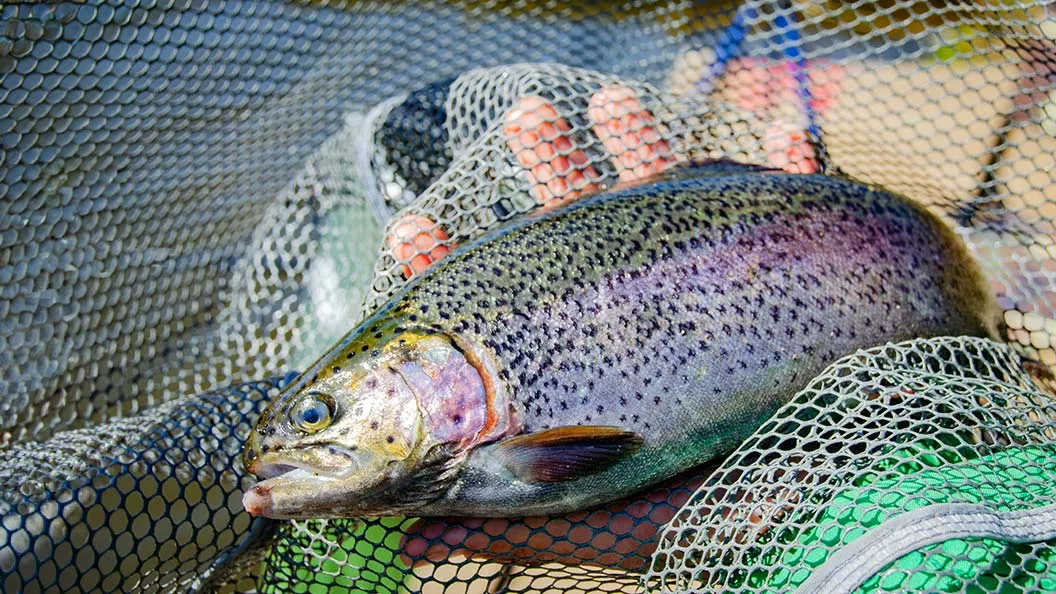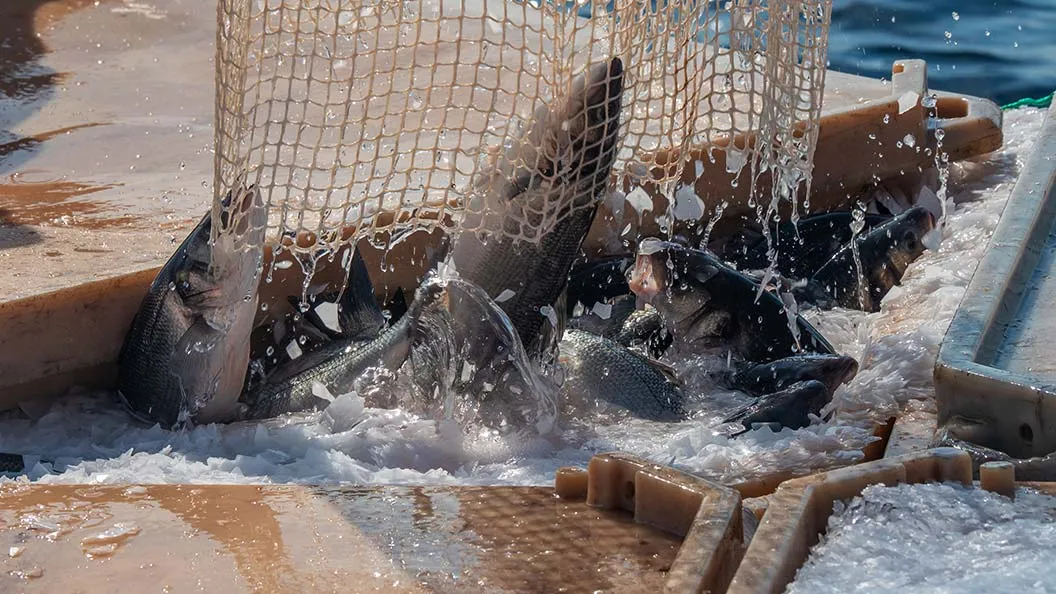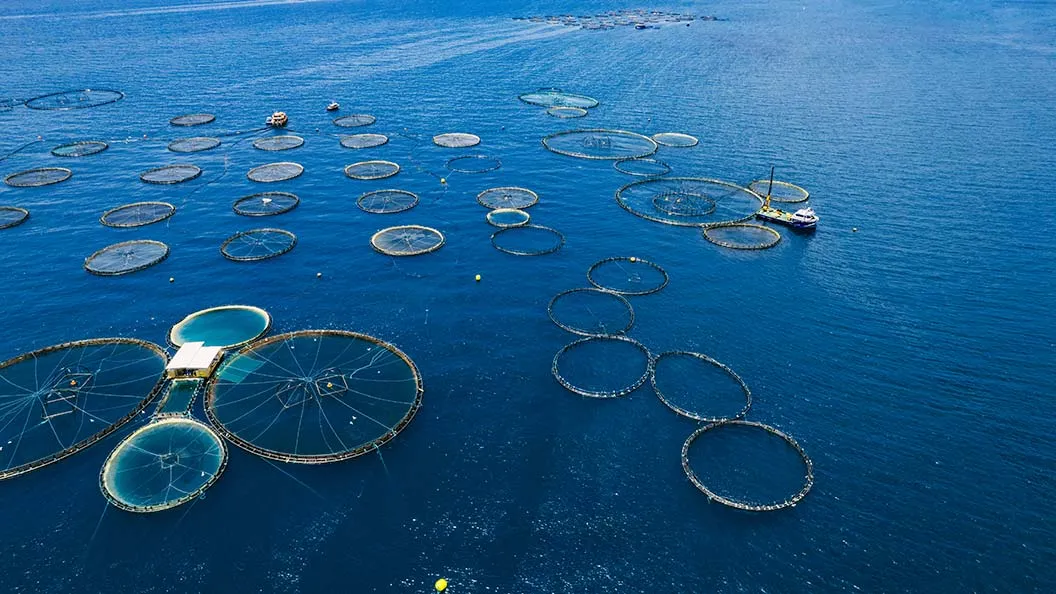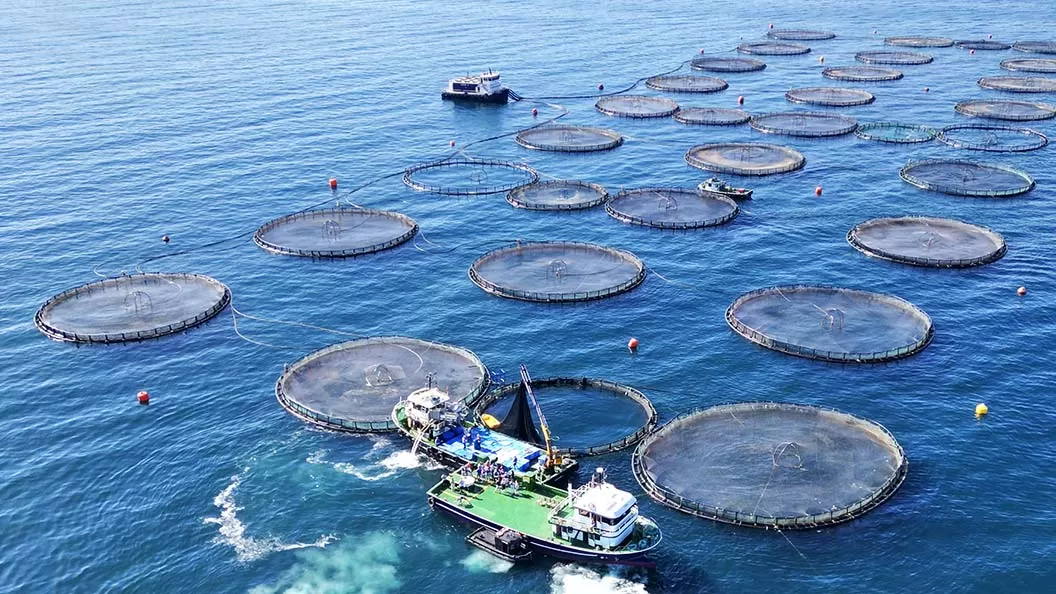Fish welfare in aquaculture
We are working to prioritize the welfare of fish raised on fish farms. These animals are a great forgotten element in the food system, and it’s time to give them their place.
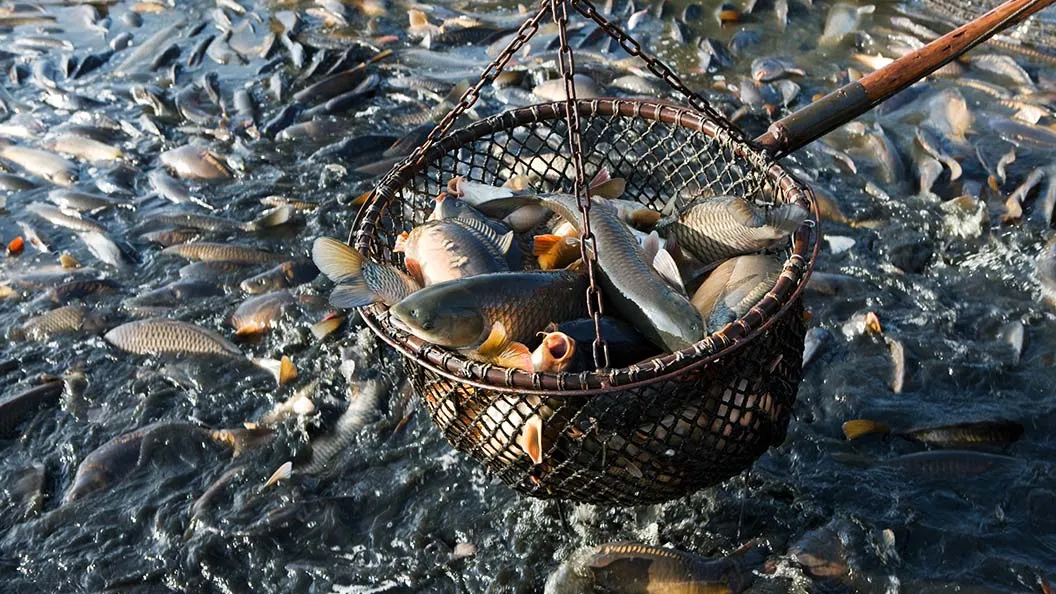

Our aquaculture initiative
We want truly sustainable aquaculture that takes into account animal welfare. To do this, we have the most “magnifishent” department in the world: real experts who are so passionate about their work that they always have some interesting new fact about fish to tell us.

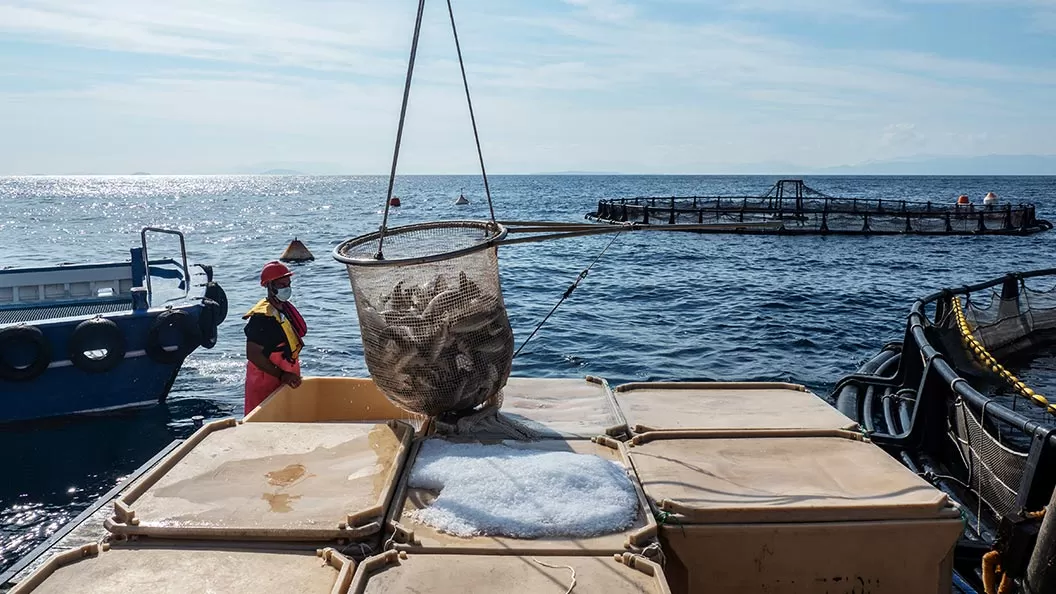

But, what’s the problem?
Ufff, where to start…
Let's begin with an important point, which is that aquaculture is the fastest-growing livestock sector in the last 3-4 decades. Nowadays, almost as many farmed fish are consumed as wild-caught ones. In fact, in 2019, 124 billion fish were farmed. This is equivalent to more than 15 times the human population! A staggering statistic.
What’s more, Spain is the country with the highest aquaculture production in the European Union.
Another VERY important fact: fish are sentient beings with a very good memory. Didn’t see that coming, right? Well, it’s true, but since they live in an environment so different from ours, we haven’t paid them much attention.
In fish farms, they currently live in conditions that have nothing to do with animal welfare: the high densities in which they coexist increase aggression and competition for food, any infectious disease can spread easily, and the water quality is greatly affected if not treated properly. Additionally, there's a star issue: the slaughter of fish without prior stunning. Very harsh.
And let’s not forget that the vast majority of fish raised on farms are carnivorous, and to produce 1 kg of their feed, 5 kg of wild fish are needed. A crazy situation in terms of planet sustainability.
Want to find out more about our work in aquaculture?
We’re diving headfirst into fish welfare with initiatives that make a real difference to the lives of these incredible animals (because fish are incredible).
Recent scientific and technological advances always work in our favor. We commissioned a report from the Animal Welfare Education Center at the Autonomous University of Barcelona to assess the feasibility of applying stunning to gilthead seabream and sea bass. The result? There is stunning machinery that can greatly reduce the suffering of fish, so it’s time to get to work.
We have joined international organizations like the Aquatic Animal Alliance and the Eurogroup for Animals to promote significant change. Additionally, we have created the Farmed Fish Stunning Commitment, which includes stunning as an essential step in the fish slaughter process.
On the other hand, we work with fish farming companies or associations of companies, such as APROMAR, to create guidelines that promote fish welfare in Spanish aquaculture. Additionally, we involve food distribution companies to join our cause. Do you want to get to know these aquatic beings better and use your purchasing power to drive changes? We provide you with all the information you need about companies' practices regarding fish farming conditions.
And you also know how we love to change laws, so we can’t allow a situation with no specific laws adequately protecting the welfare of fish. That’s why we are studying the legal content of regulations affecting fish and advocate for the development of new legislation.
Evolution of aquatic animal consumption: aquaculture vs fishing
Here’s a comparison of aquatic animal consumption habits for 1960 and 2020. As you can see, in 1960 there was hardly any consumption of animals produced on fish farms. However, in only 60 years, over half of the consumed aquatic animals are now farm-raised.
Year 1960
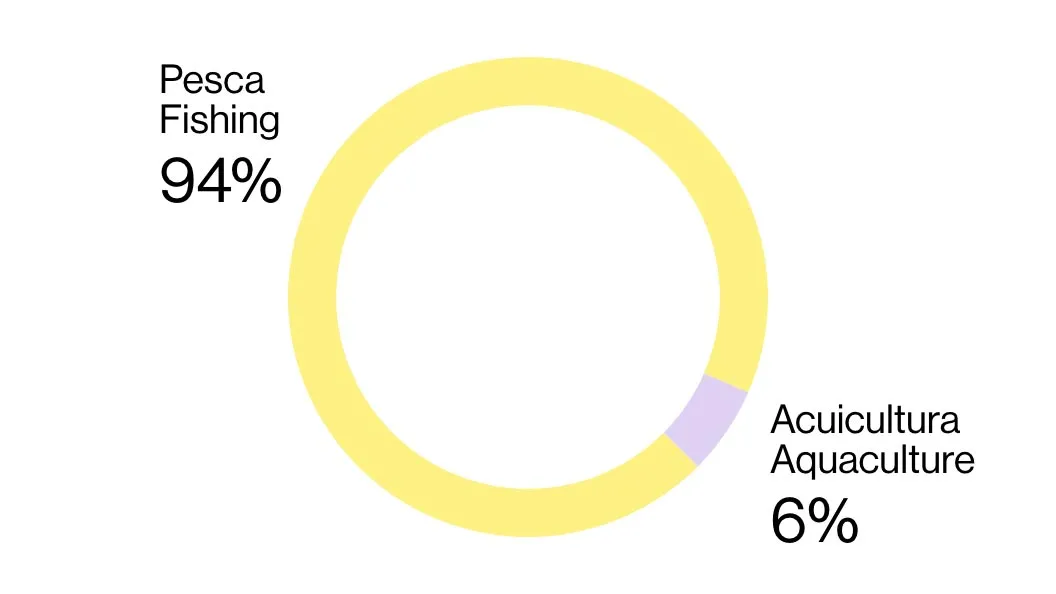
Year 2020
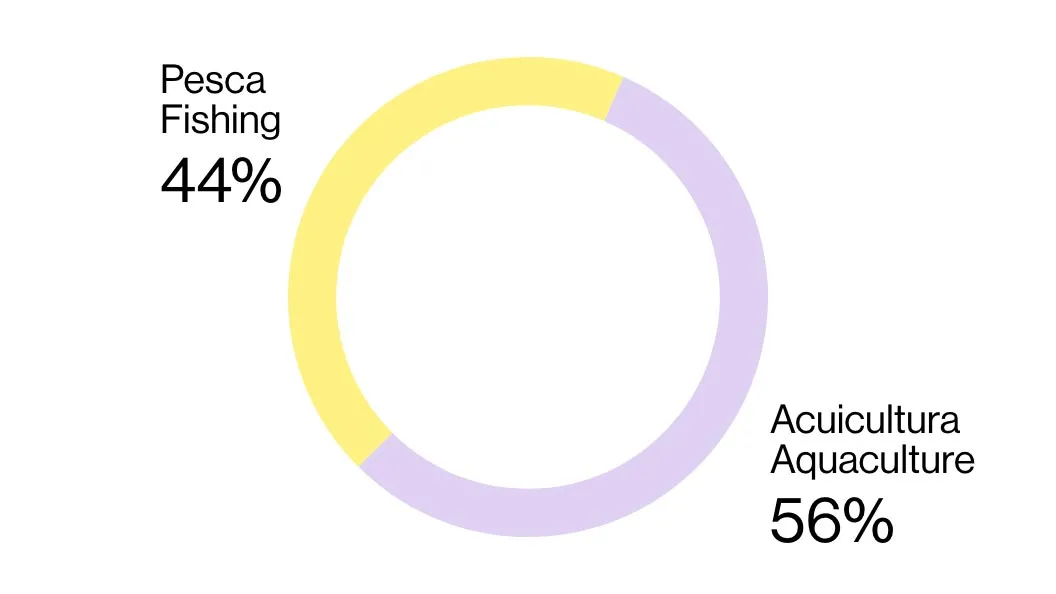
"Aquaculture is the fastest growing food sector in the last 40 years. Its sustainable development must take into account the welfare of aquatic animals."
Dive into defending fish welfare!
In our unflagging fight to guarantee fish welfare, we need your support to continue swimming towards our goal. Want to make a tangible difference in the lives of these extraordinary aquatic beings?






